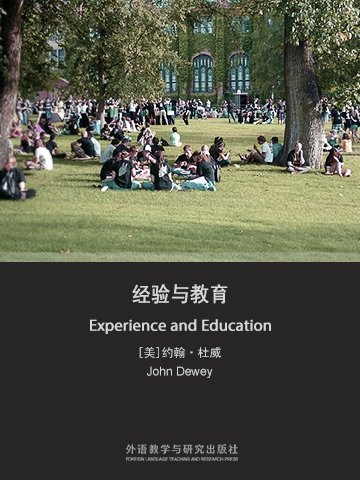从实用主义经验论和机能心理学出发,杜威批判了传统的学校教育,并就教育本质提出了他的基本观点,"教育即生活"和"学校即社会"。
在杜威的实用主义教育思想体系中,教学论是一个十分重要的组成部分。在批判传统学校教育的基础上,杜威提出了"从做中学"这个基本原则。杜威认为,好的教学必须能唤起儿童的思维。作为一个思维过程,具体分成五个步骤,通称"思维五步",一是疑难的情境;二是确定疑难的所在;三是提出解决疑难的各种假设;四是对这些假设进行推断;五是验证或修改假设。
Dewey was critical of both traditional and progressive education, that is he saw challenges within both educational approaches because they lacked a carefully developed philosophy of experience. Dewey's progressive learning theory is based on the idea that people, even young people, are not just blank slates waiting to be filled with knowledge from kinder through college. Instead, Dewey suggested that students organize fact-based comprehension through meta-cognition, or by building onto prior experiences, preconceptions, and knowledge, and therefore, the educator's role is in creating an educative experience.
经验论是杜威教育哲学的核心。他的《经验与教育》即是为了总结、修改和完善他的关于经验的理论。《经验与教育》是杜威后期的一部重要的代表作。它围绕学校与社会、教育与生活、教育与经验的关系问题展开论述,深刻反映了杜威的实用主义教育思想,对于了解和研究杜威的教育思想具有重要意义。
Experience and Education is a short book written in 1938 by John Dewey, a pre-eminent educational theorist of the 20th century. It provides a concise and powerful analysis of education. In this and his other writings on education, Dewey continually emphasizes experience, experiment, purposeful learning, freedom, and other concepts of progressive education. Dewey argues that the quality of an educational experience is critical and stresses the importance of the social and interactive processes of learning.
- PREFACE
- I TRADITIONAL vs. PROGRESSIVE EDUCATION
- II THE NEED OF A THEORY OF EXPERIENCE
- III CRITERIA OF EXPERIENCE
- IV SOCIAL CONTROL
- V THE NATURE OF FREEDOM
- VI THE MEANING OF PURPOSE
- VII PROGRESSIVE ORGANIZATION OF SUBJECT-MATTER
- VIII EXPERIENCE—THE MEANS AND GOAL OF EDUCATION
- CRITICAL COMMENTARY
- Dewey’s Experience and Education Revisited
- Experience and Education: Implications for Teaching and Schooling Today
- An Invitation to Think
- CONTRIBUTORS
- INDEX TO EXPERLENCE AND EDUCATION






















 京公网安备 11010802032529号
京公网安备 11010802032529号
笔记加载中...